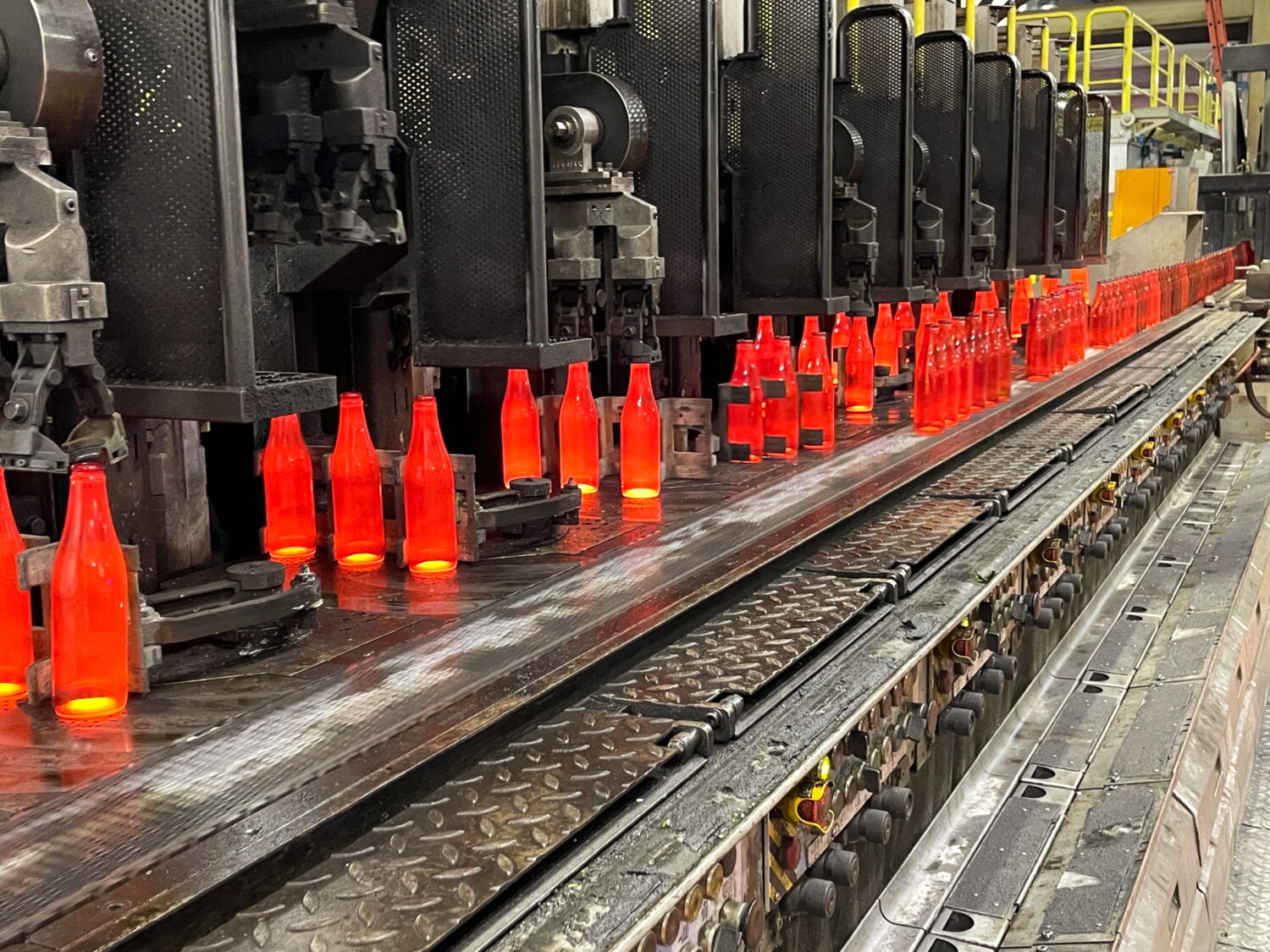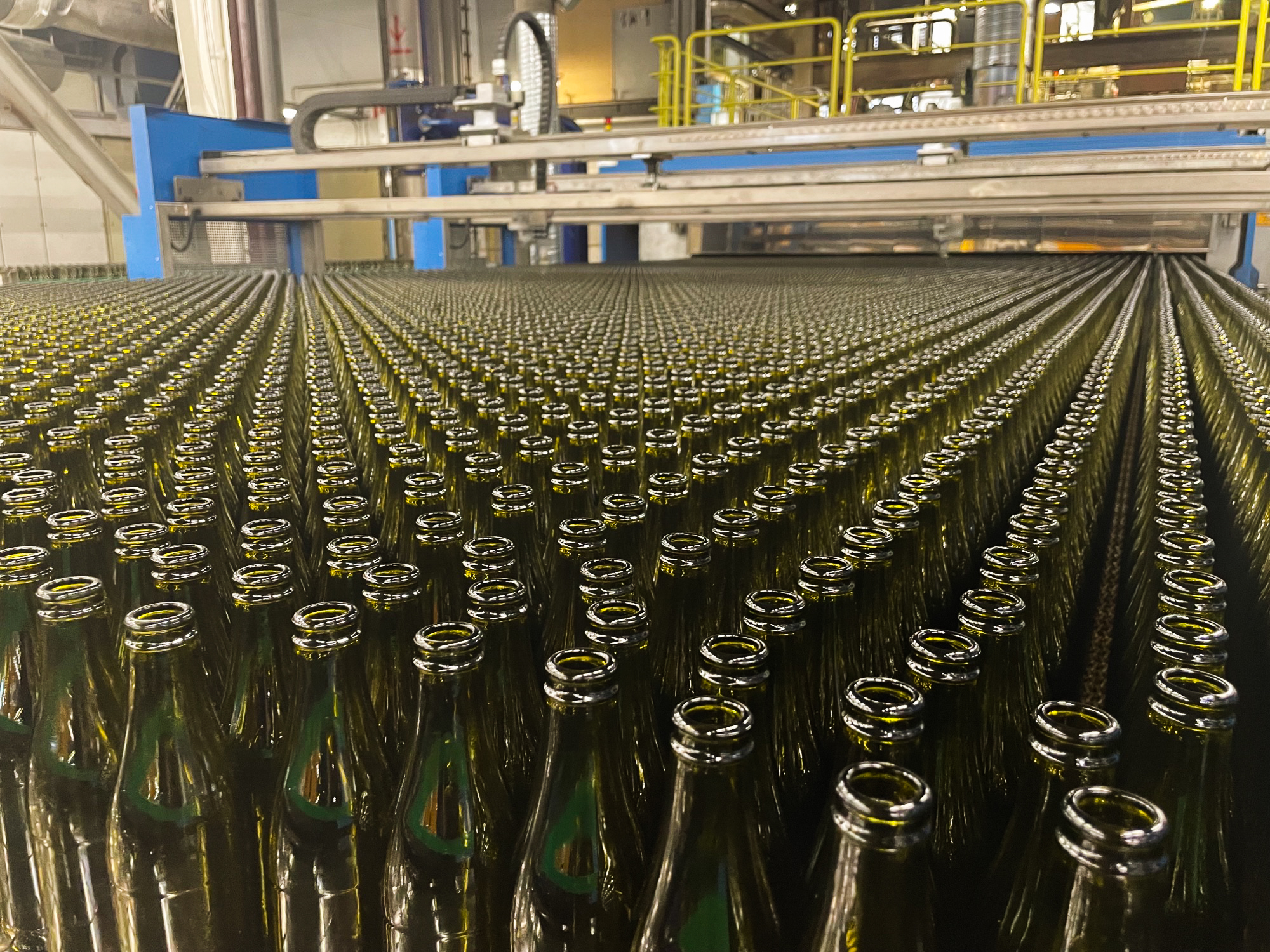Application for the surplus heat energy efficiency scheme (EFO)
Ardagh Glass Holmegaard A/S is a glassworks that manufactures glass packaging for the food and beverage industry. The company is part of the Irish conglomerate Ardagh Group, which operates in over 25 countries. At the glassworks in Holmegaard, approximately 760 million glass packaging and bottles are produced annually.
Glass production is an energy-intensive process, and therefore, both the Holmegaard plant and the entire Ardagh Group have a strong focus on using energy and resources as efficiently as possible. As part of this strategy, since 2014, Ardagh has been supplying surplus heat from their melting furnaces to the nearby district heating plant, Fensmark Fjernvarme. The surplus heat contributes to ensuring that the heat from Fensmark District Heating is 90-92% CO2-neutral most of the time.

“It is a great advantage for us when consultants are familiar with the glassworks industry and specifically our company. It means they understand our processes and have easy access to the relevant data. Kristian from Nordic Green Solutions has the necessary knowledge about Ardagh and is also certified as an independent expert in the EFO scheme. Therefore, it was Nordic Green Solutions who should handle our application for the EFO scheme.”
– Joachim Enoch, Project Manager at Ardagh Glass Holmegaard.
Tax exemption on surplus heat
Utilizing surplus heat for district heating makes sense for both the local district heating plant and the climate. However, economically, the benefit for the company selling surplus heat has been affected by the surplus heat tax. Therefore, in early 2022, the Danish Energy Agency introduced the Surplus Heat Energy Efficiency Scheme – also known as EFO. Companies approved for the scheme are exempt from the surplus heat tax for the parts of their surplus heat deliveries covered by the scheme.
For Ardagh, it was obvious to apply for approval to be exempt from the surplus heat tax. Therefore, at the end of 2021, they initiated a process to investigate how they could prepare an application for the EFO scheme. It quickly became clear to the company that the application was not a task they should handle themselves.
“Even though we are ISO 50001 certified, and thus accustomed to working systematically with the energy sector and its data, there is a lot of work involved in collecting and processing the data for the EFO application. It was not a task we would have the resources to solve ourselves,” says Joachim Enoch, Project Manager at Ardagh Glass Holmegaard.
Instead, they chose Nordic Green Solutions, with whom they had collaborated before, to handle the application.
Application and energy review
To apply for approval for the EFO scheme, the company must have prepared a report with an energy review. The energy review is conducted on the company’s surplus heat, including processes and facilities that generate, upgrade, and transport surplus heat. The energy review is used to identify efficiency projects related to surplus heat.
In Ardagh’s case, Nordic Green Solutions found 5 potential projects. Projects with a payback period of up to 5 years should, as a rule, be implemented within 12 months. At Ardagh, one of the projects fell into this category, so now the actual savings that can be achieved by implementing the project are being investigated, compared to the theoretical savings identified by the energy review.
The application for the EFO scheme must be verified by an approved external verifier, and the same applies to the energy review with accompanying energy mapping, screening list, and energy action plan every year. If there are no significant changes in the company’s energy conditions that may affect surplus heat, the energy review must be updated every 3 years.
The economic and societal benefits of the EFO
Today, Ardagh is approved according to the EFO scheme and saves over 800,000 DKK annually on taxes.
“The prospect of achieving significant savings on surplus heat taxes was clearly the biggest motivating factor for joining the EFO scheme. However, in addition, we have also gained a good overview of our energy conditions regarding surplus heat and identified specific optimization projects that can result in more savings and better resource utilization,” says Joachim Enoch, Project Manager at Ardagh Glass Holmegaard.
Ardagh was among the first companies to be approved for Energistyrelsen’s EFO scheme. And at the glassworks, there is a clear desire to make it easy for more companies to benefit from the scheme, so that more surplus heat is utilized.
“Societally, there is a significant gain in utilizing surplus heat from companies. Therefore, it’s also important that it’s not too difficult to join a scheme like EFO, which precisely makes it attractive to sell surplus heat. We hope that more companies join, and that we see similar initiatives in the future, providing good conditions for more reuse of companies’ resources,” says Joachim Enoch, Project Manager at Ardagh Glass Holmegaard.
Would you also like to save on energy expenses and achieve a greener operation?
It is costly to use unnecessary energy – both for the climate and your company’s finances. Read more about how we can help you conduct an independent assessment of your company’s optimization potential.
